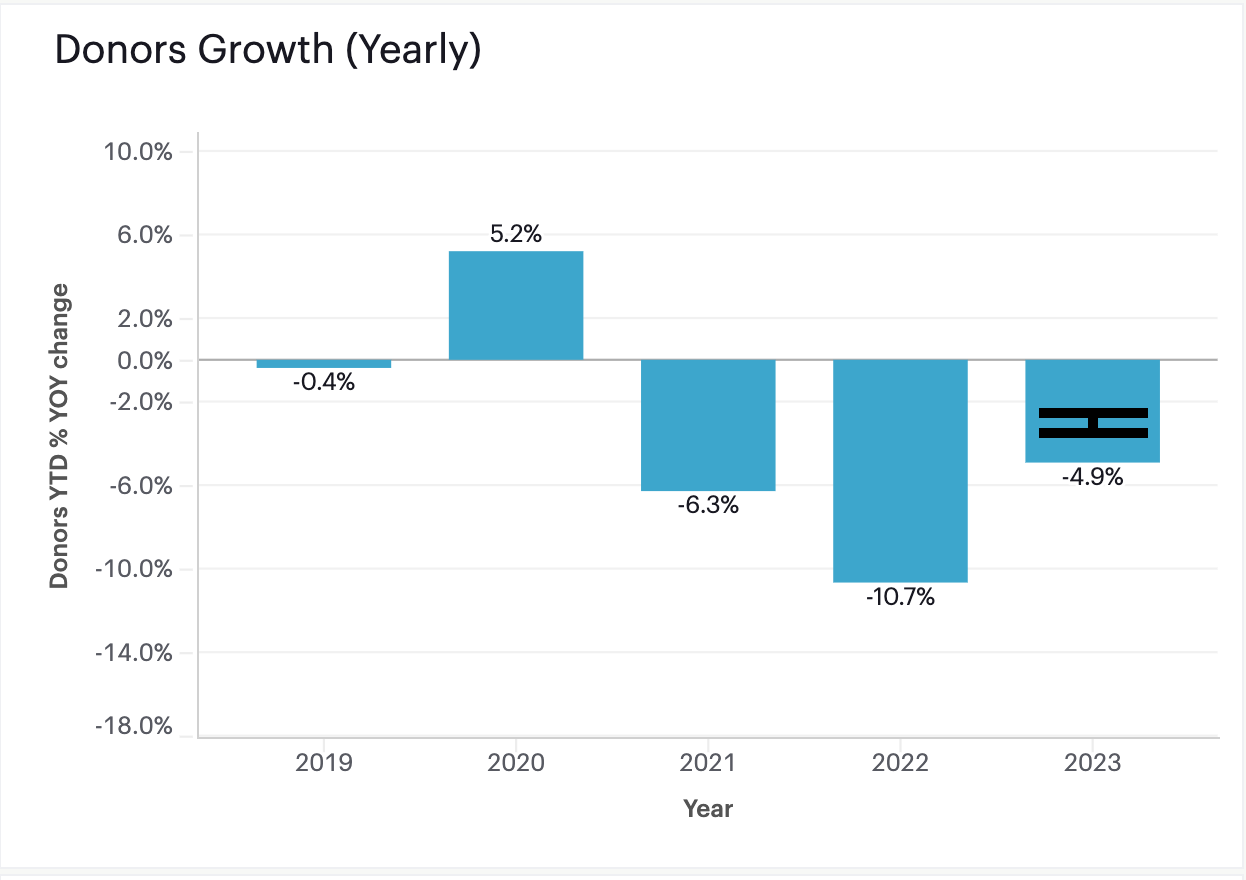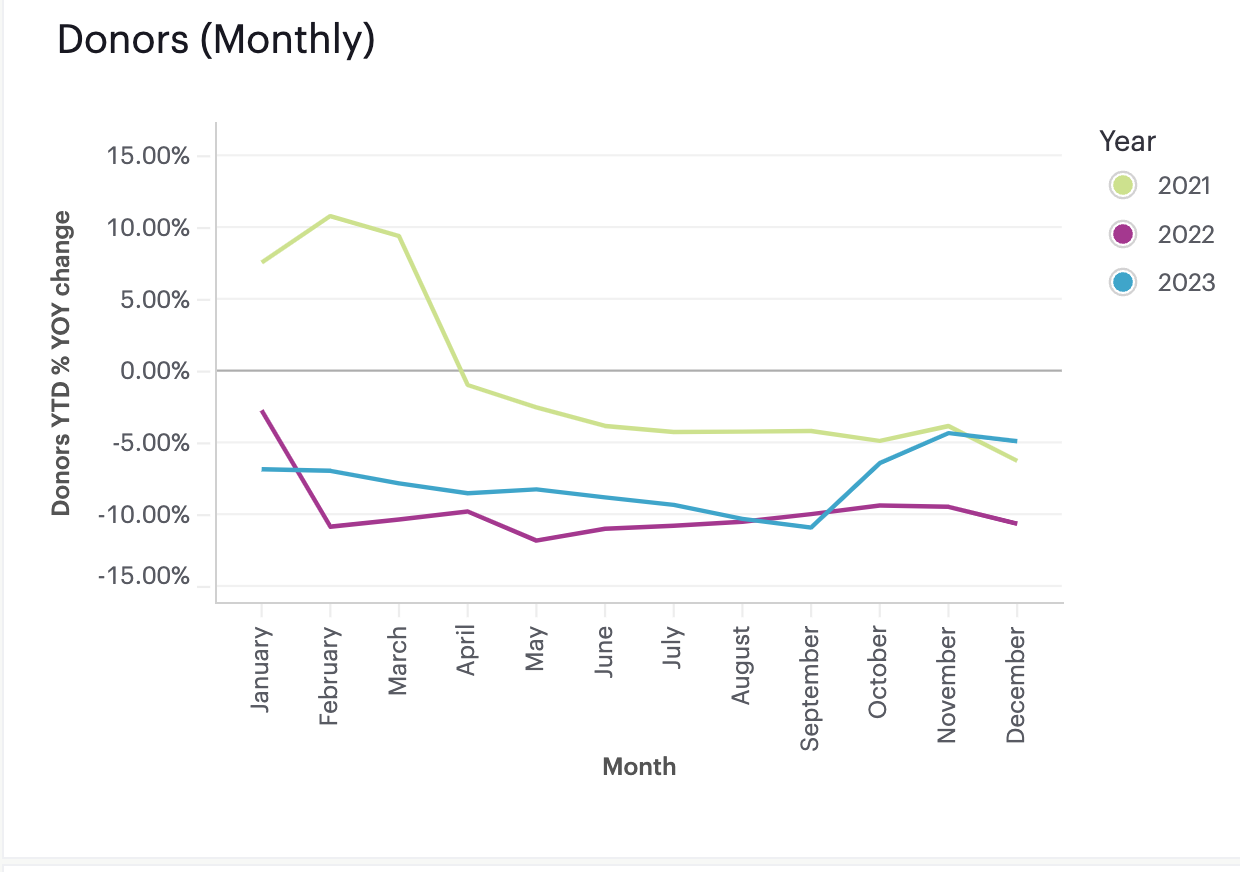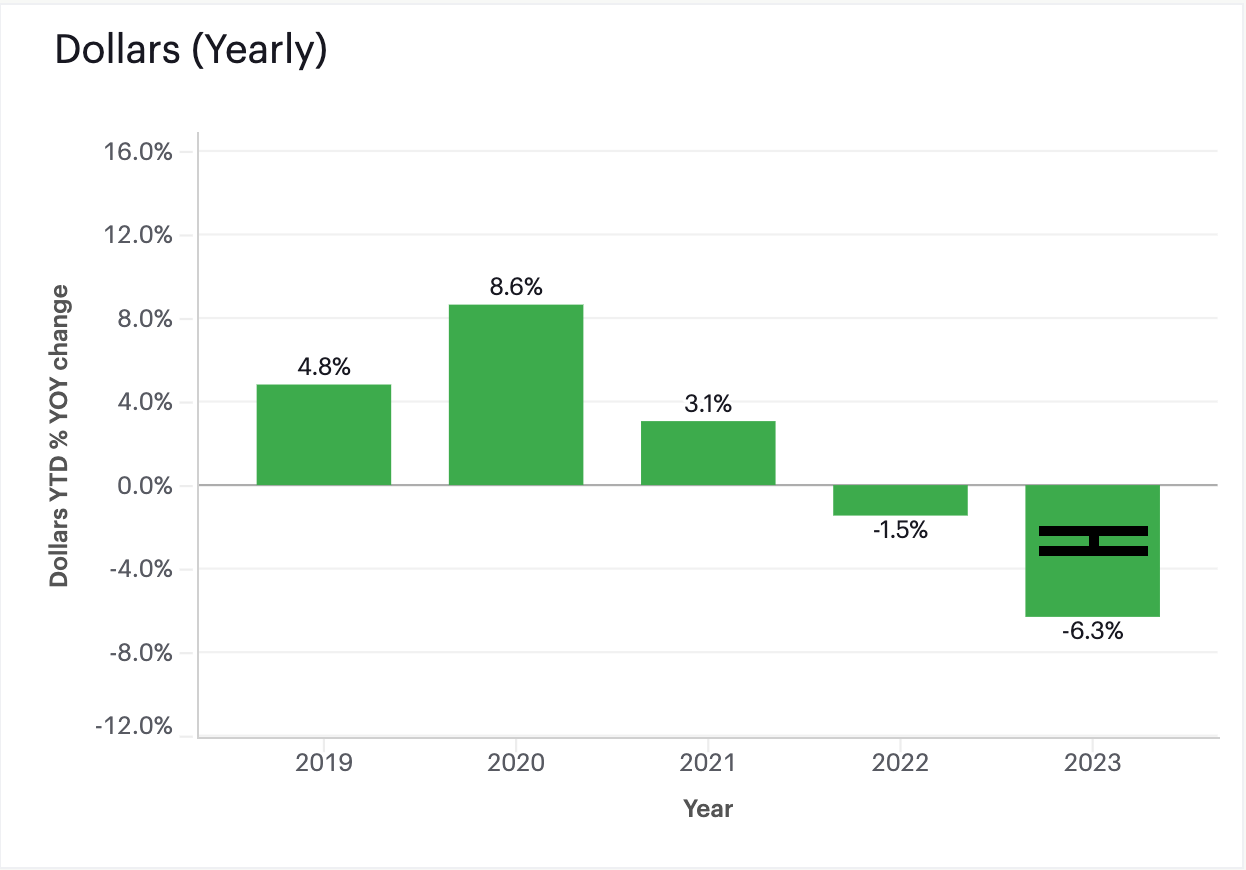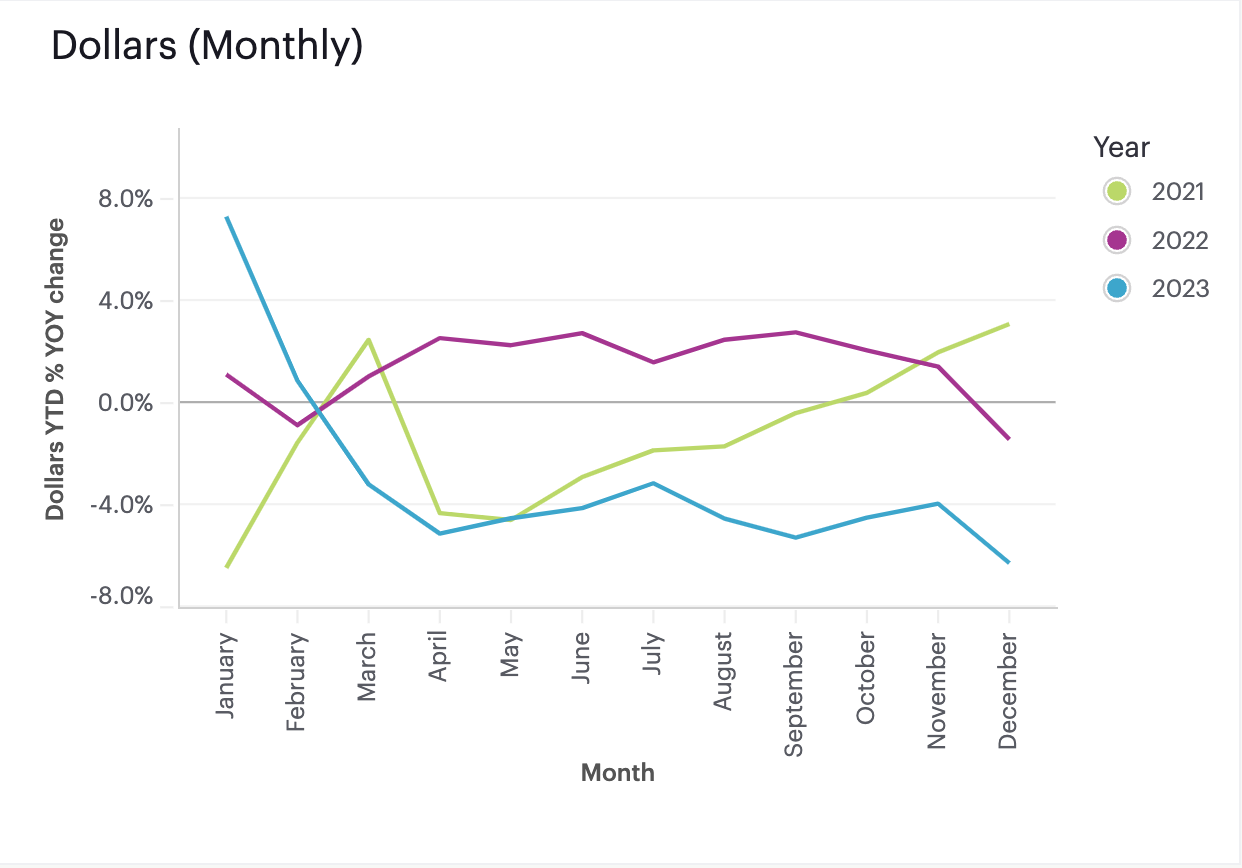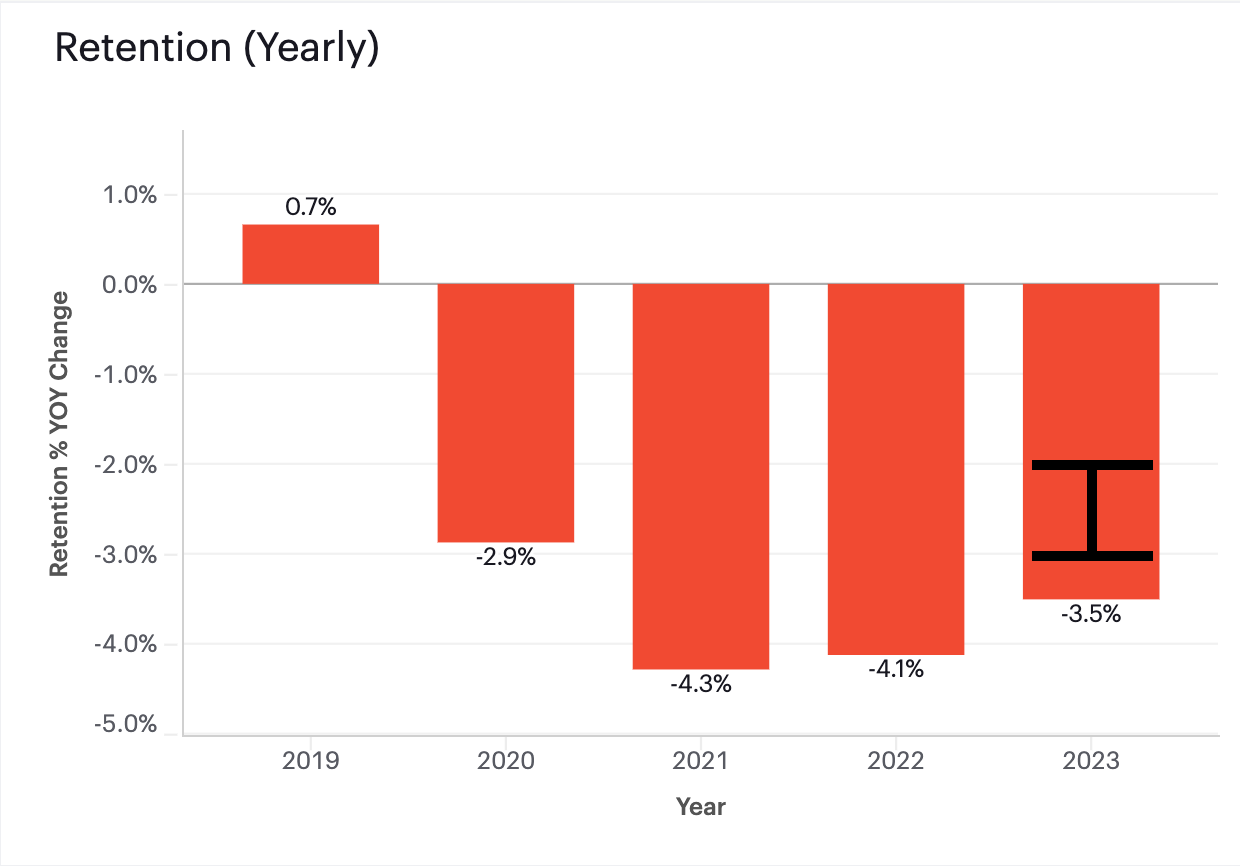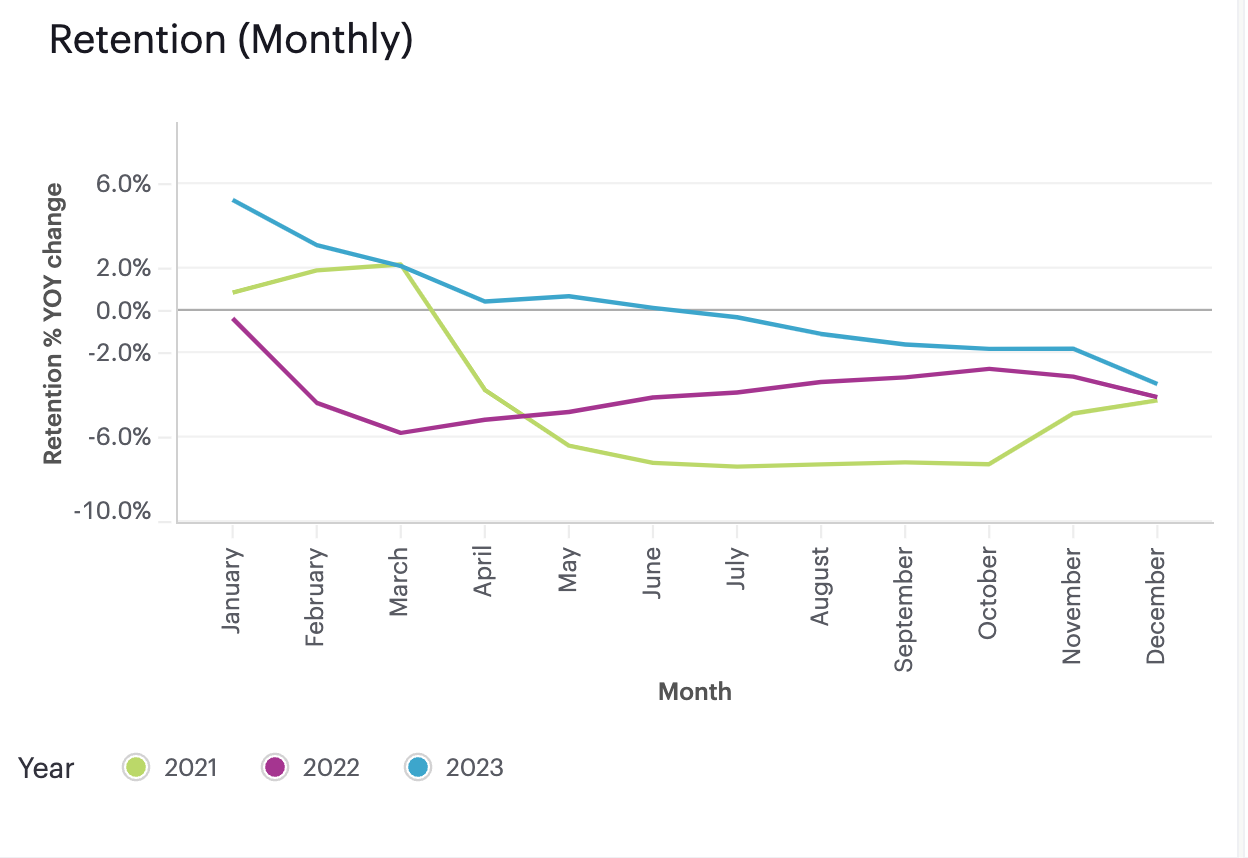FUNDRAISING EFFECTIVENESS PROJECT
The Fundraising Effectiveness Project (FEP) delivers trusted data insights that help fundraisers improve their outcomes, driving growth and increasing generosity across the nonprofit sector. We envision a sector where actionable data guides every fundraiser’s decisions, helping nonprofits become more effective and adaptive. Since its founding in 2006, FEP has become a leading resource for data-driven insights. FEP is a collaborative project of the Association of Fundraising Professionals (AFP) Foundation for Philanthropy and GivingTuesday.
METHODOLOGY
We removed organizations that did not have a minimum of 25 donations and $5,000 in revenue in each of the previous three years. We removed organizations at either tail of the revenue growth curve. If revenue growth was more than 300% or less than -66% in any of the past three years, organizations were removed. We also excluded individual contributions above $10M. We weighted our data by organization size and NTEE major group to make it reflective of 2018 IRS filers in the $5K - $25M range of contributions. Details regarding estimation methodology for late reported data can be found here.




